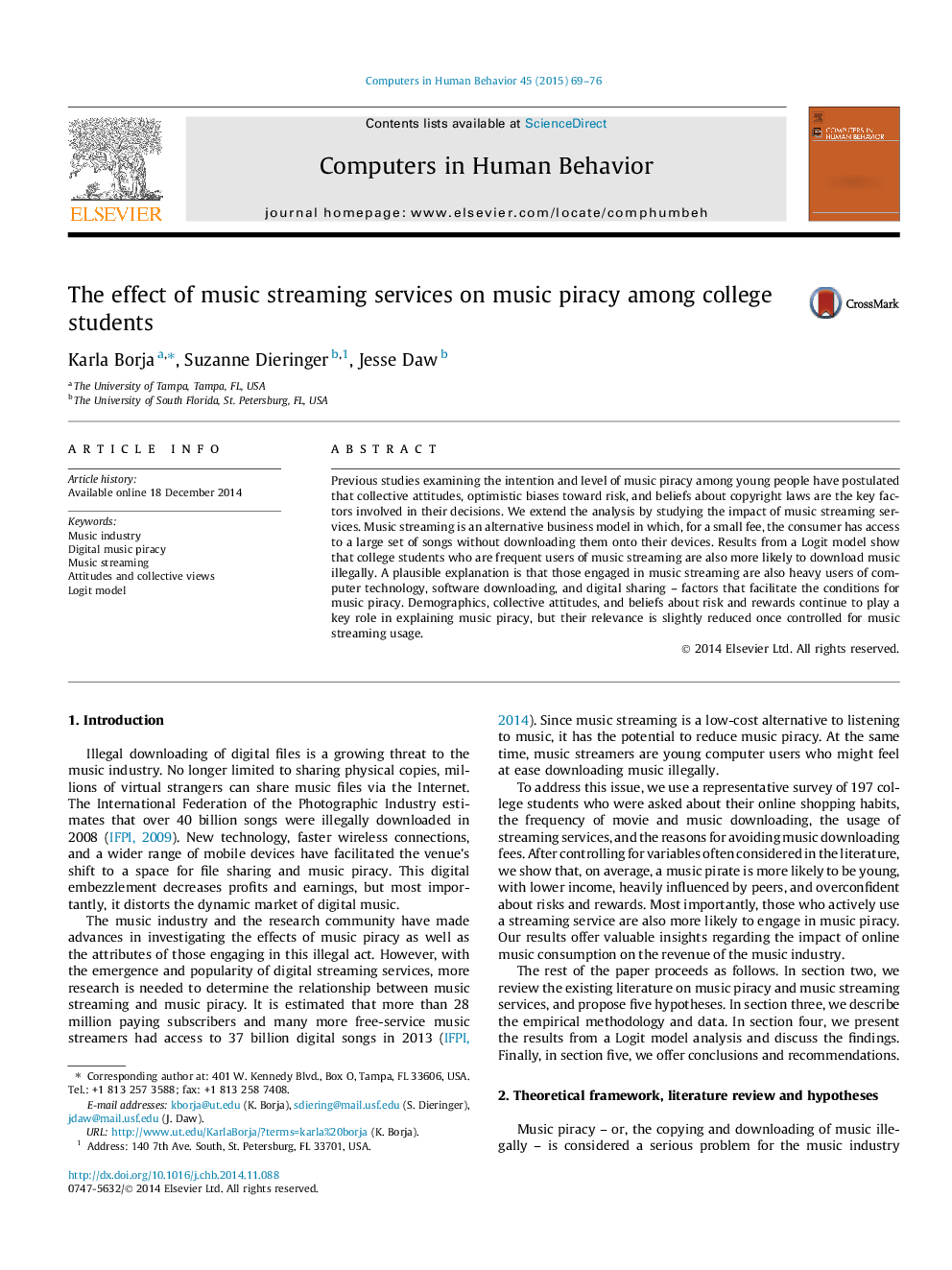| Article ID | Journal | Published Year | Pages | File Type |
|---|---|---|---|---|
| 350457 | Computers in Human Behavior | 2015 | 8 Pages |
•We analyze the impact of music streaming services in digital music piracy.•Using a sample of 197 surveys, we evaluate correlations between groups.•We develop a Logit regression model to test five hypothesis regarding music piracy.•We find that music streamers are more likely to illegally download music.•We find that optimistic beliefs about risk and rewards explain music piracy.
Previous studies examining the intention and level of music piracy among young people have postulated that collective attitudes, optimistic biases toward risk, and beliefs about copyright laws are the key factors involved in their decisions. We extend the analysis by studying the impact of music streaming services. Music streaming is an alternative business model in which, for a small fee, the consumer has access to a large set of songs without downloading them onto their devices. Results from a Logit model show that college students who are frequent users of music streaming are also more likely to download music illegally. A plausible explanation is that those engaged in music streaming are also heavy users of computer technology, software downloading, and digital sharing – factors that facilitate the conditions for music piracy. Demographics, collective attitudes, and beliefs about risk and rewards continue to play a key role in explaining music piracy, but their relevance is slightly reduced once controlled for music streaming usage.
